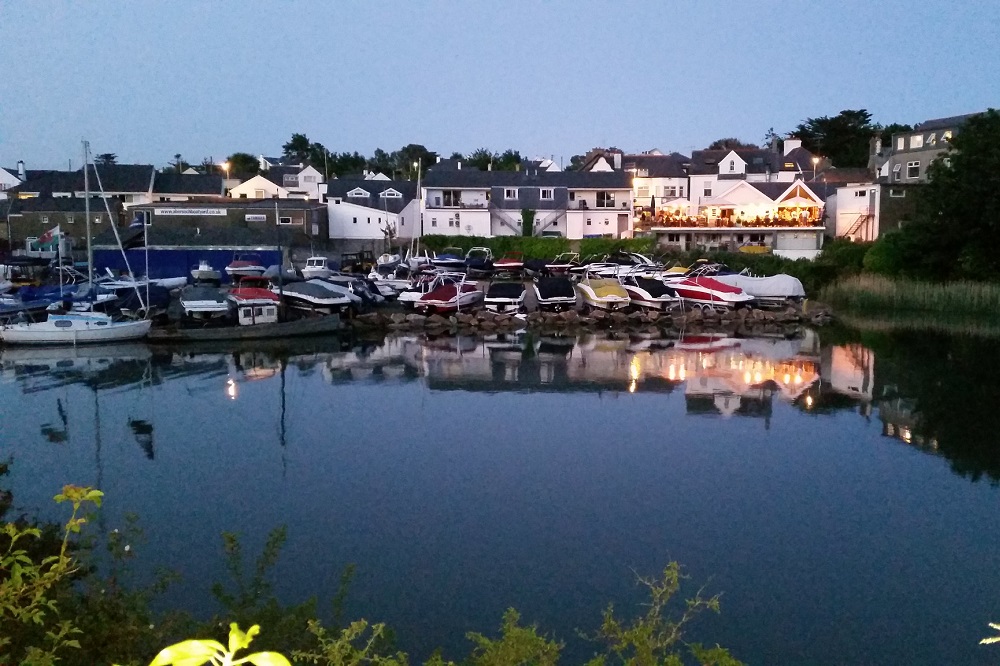Councillors recommended not to hike second home tax as it would encourage exploiting ‘loopholes’

Gareth Williams, local democracy reporter
Councillors are being recommended not to hike the tax premium on second home owners due to the “unrelenting” flow of such properties no longer paying into the authority’s coffers.
A full meeting of Gwynedd Council next week will be asked not to amend the current 50% levy amid the perceived “risks” which include pushing more owners to explore ways of not paying council tax at all.
With authorities permitted by the Welsh Government to charge a premium of up to 100% on such properties, the Welsh Local Government Association has described the measure as a “much-needed and practical way of using the local taxation system to ensure second homes make a fair contribution”.
In Gwynedd’s case, where the 50% levy has been in place since 2018, some of the cash generated is earmarked to help young people get a home in their communities by bringing empty homes back into use.
But despite the topic gaining substantial traction over recent months, fears that the authority is missing out on much-needed income due to second home owners exploiting a “loophole” in the law has seen officers recommend not to increase the current levels for the time being at least.
This is due to people owning second homes being able to class them as furnished holiday lets, thus often qualifying for 100% small business rate relief and not paying any council tax or business rates.
The report that will be presented to all councillors next Thursday notes the “risks” associated with further raising the premium, including the potential of legal challenges were such a decision made without a proper consultation.
It also recommends not changing the current 50% premium on long-term empty properties.
“The transfer of properties from the Council Tax regime to business rates has accelerated since the first decision to introduce the 50% premium was taken,” the report goes on to note.
“There is a risk that this would accelerate again if taxation increases further as the tolerance of some taxpayers ceases and they will look for ways to avoid paying the higher taxes.”
Transferred
Authorities across west Wales have long lobbied on the Welsh Government to “close the loophole” allowing some holiday homes to transfer from council tax to business tax rates.
In order to have their property rated as a ‘self-catering unit’ and valued for business rates, second home owners in Wales must make their property available to let for 140 days or more per year and then let it for a minimum of 70 days.
Speaking to the Local Democracy Reporting Service on Friday, Cllr Peter Read of the council’s WNP group said they would be pressing to increase the premium.
“The fact is that there are so many people in Gwynedd that can’t afford one house, let alone two, and its only right that second home owners should be paying the maximum currently permitted by the Welsh Government.”
But the report confirms that between April 2014 and October 2020, a total of 1,967 Gwynedd properties have successfully transferred from the council tax list to non-domestic rates by being classified by the Valuation Office Agency as self-catering accommodation.
In 2019 it was noted that Gwynedd Council was missing out on £2m a year in potential revenue as a result of such transfers.
Since April alone 280 transfers have been made, which the report suggests is linked with ensuring eligibility for the recent Covid-19 business grants worth £10,000 each.
The council leader, Cllr Dyfrig Siencyn, has described the “legal loophole” as allowing many to “take advantage of the situation and prevent local authorities from using a key source of funding.”
‘Campaign’
As recently as last month, meanwhile, a full meeting backed a motion calling for stricter measures, including making it compulsory for planning permission to be in place before anyone can turn a house into a holiday home.
“The council’s members and officers continue to await proposals by Welsh Government, and the unrelenting continuation of the transfer has been recorded on the Council’s corporate risk register,” concludes the report.
“We aim to ensure a meeting with the Minister to put pressure on the Government to change legislation relating to holiday homes, and to run a wider campaign to promote that.”
A Welsh Government spokesman said that they recognised the challenges second homes present to the affordability and availability of housing in some communities in Wales.
But he added that the law makes a “clear distinction” between properties used as second homes and those used as self-catering accommodation.
“Second homes are liable for council tax, including council tax premiums in those local authorities which have used their discretionary powers to apply premiums,” he said.
“Properties which meet the letting criteria for self-catering accommodation are listed for non-domestic rates and treated in the same way as other businesses for local tax purposes.
“We have invited local authorities to provide information on any cases where they believe properties have been incorrectly listed.”
Support our Nation today
For the price of a cup of coffee a month you can help us create an independent, not-for-profit, national news service for the people of Wales, by the people of Wales.






